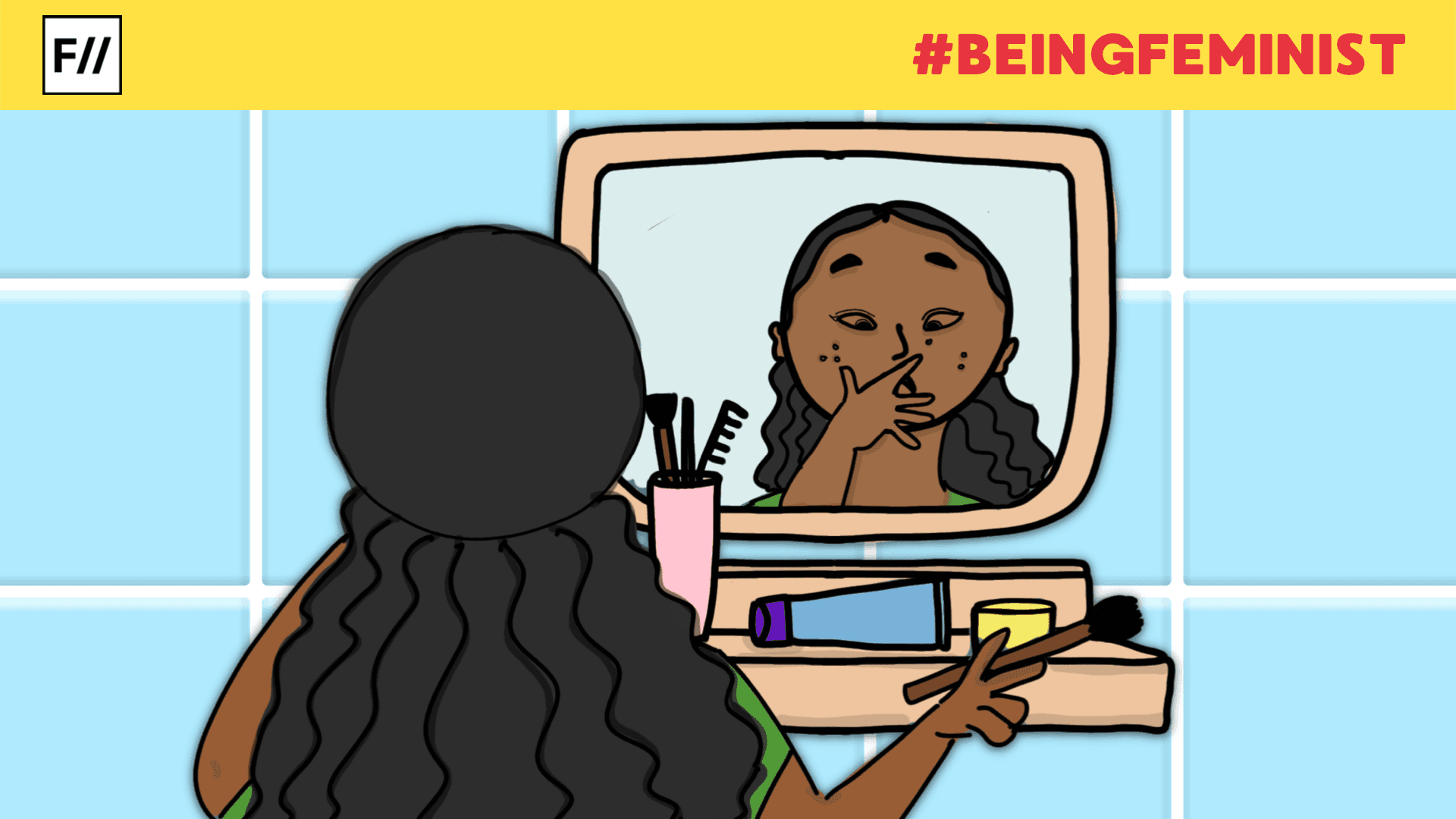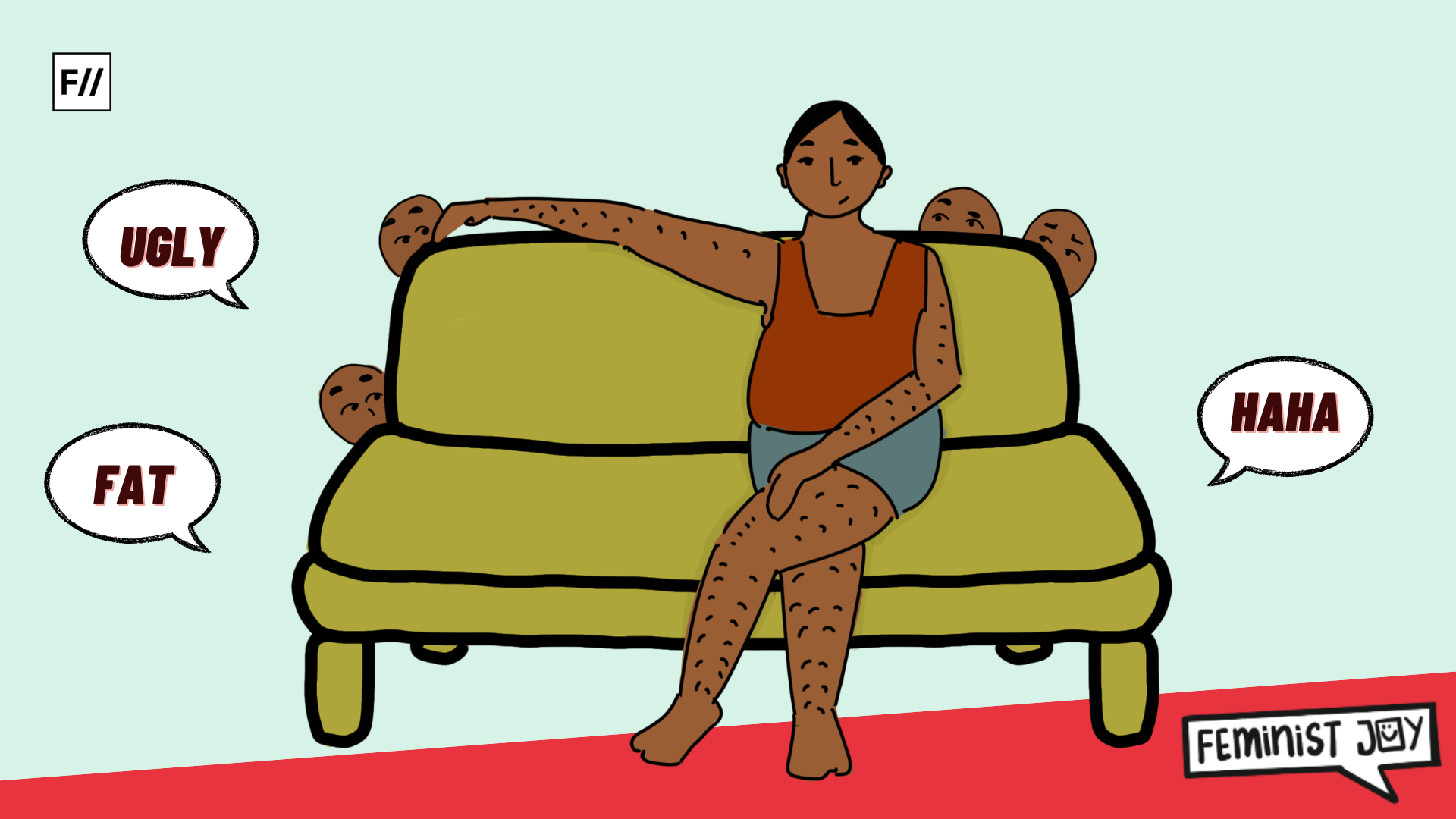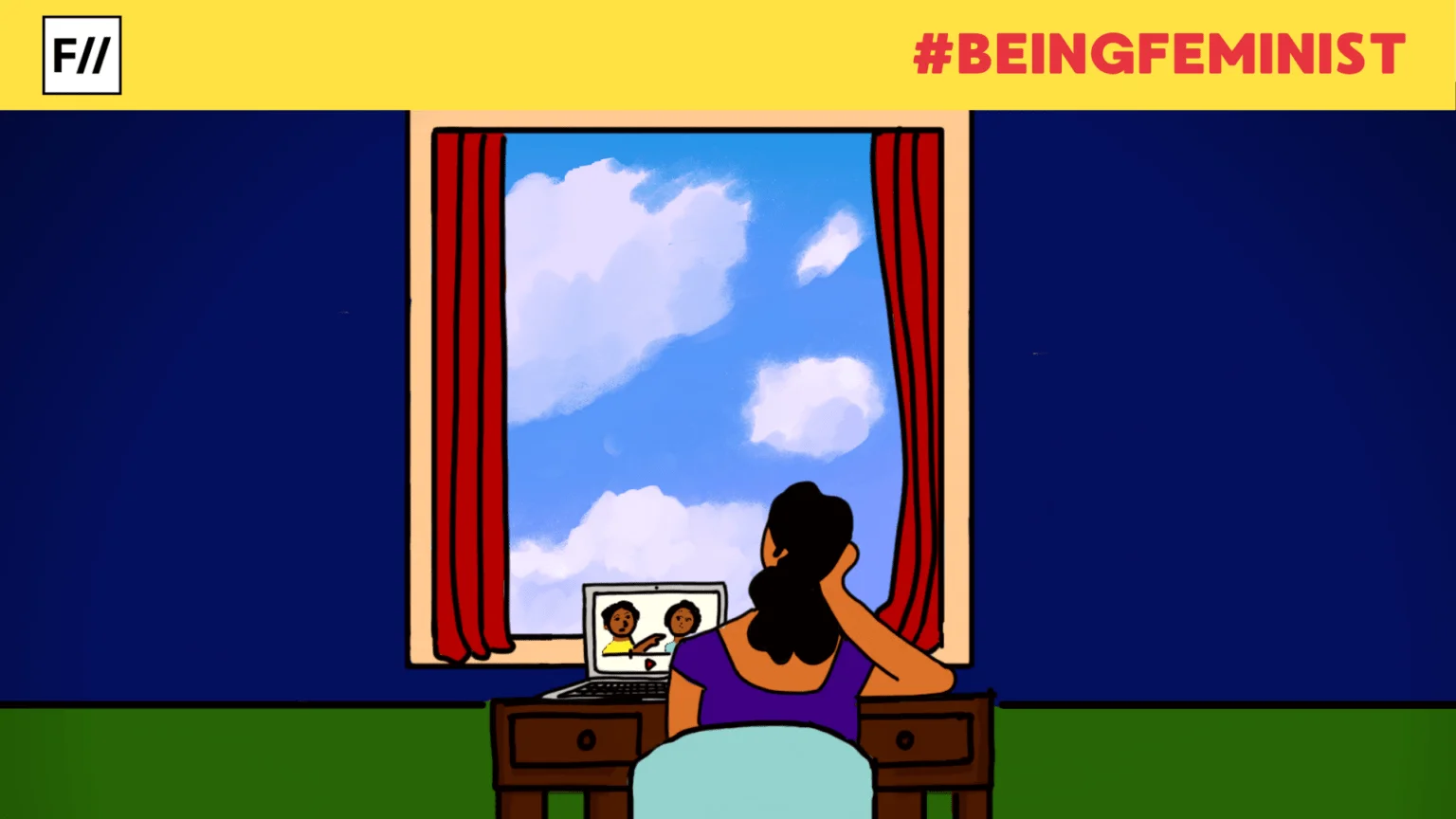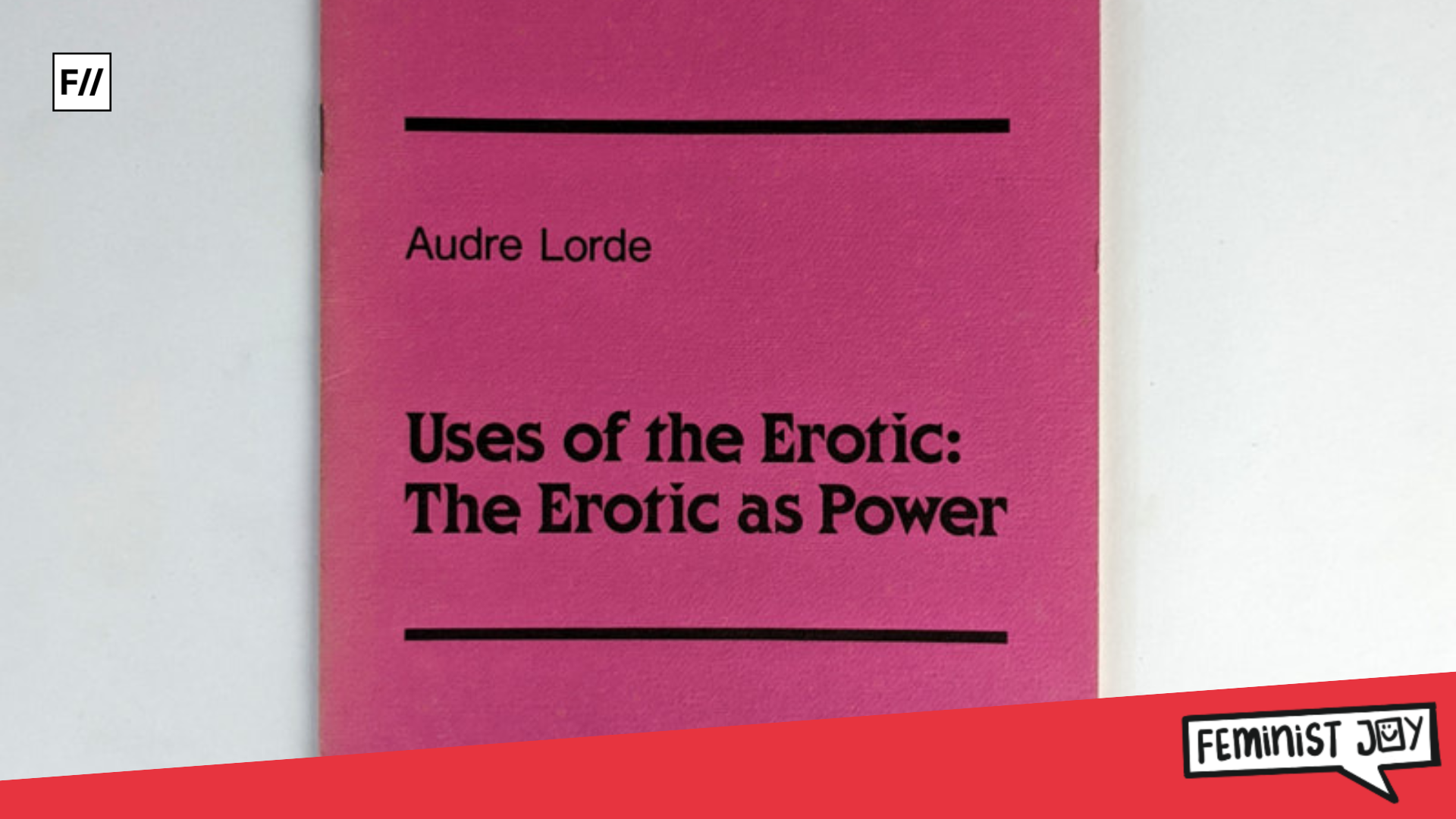From doomscrolling makeup tutorials, scanning through shopping websites, buying the same beauty products that seem to be the proof of “girlhood” and being feminine, to passively engaging in the ‘I am just a girl‘ trend that has flooded Instagram and other social media platforms as some harmless—reclaiming femininity—content, I find myself in an endless loop of overconsumption, of desiring a sense of femininity, of a performance that, I believe, is constructed by the patriarchal society standards and capitalist conglomerates profiting off my insecurities—insecurities that were created by these very systems.
While I believe in individual agency and self-expression through make-up and outfits, the idea that it is influenced by the cultural hegemony that the beauty industry has over the current society and that these ideals are not manifested in isolation is something I can not ignore. And still a part of me caves into these standards. I wake up, and the urge to use a concealer to conceal the dark circles hollowing my eyes—to look presentable—is stronger than ever. My appearance does not define my worth; however, the idea to look a certain way to feel confident are ideals I do not necessarily consider my own. It makes me question if these ideals are shaped by the century-old beauty standards and cultural blueprints.
Beauty influencers and hegemony
Every like that I leave on these videos promoting and commercialising particular beauty ideals and habits makes me question the feminist I seek to be. I have grown up around women that believed beauty is what defines a woman, what makes her desirable. Male attention was the sole purpose of your beauty. I do not blame the women around me who carried on with these ideals or internalised them, for these are the “beliefs” we have grown up with, perpetuated through the cinema and media time and again. However, even now, when we claim to be aware of these convictions, we tend to slip past the critical lens and—if not actively but passively—engage and promote these ideologies.
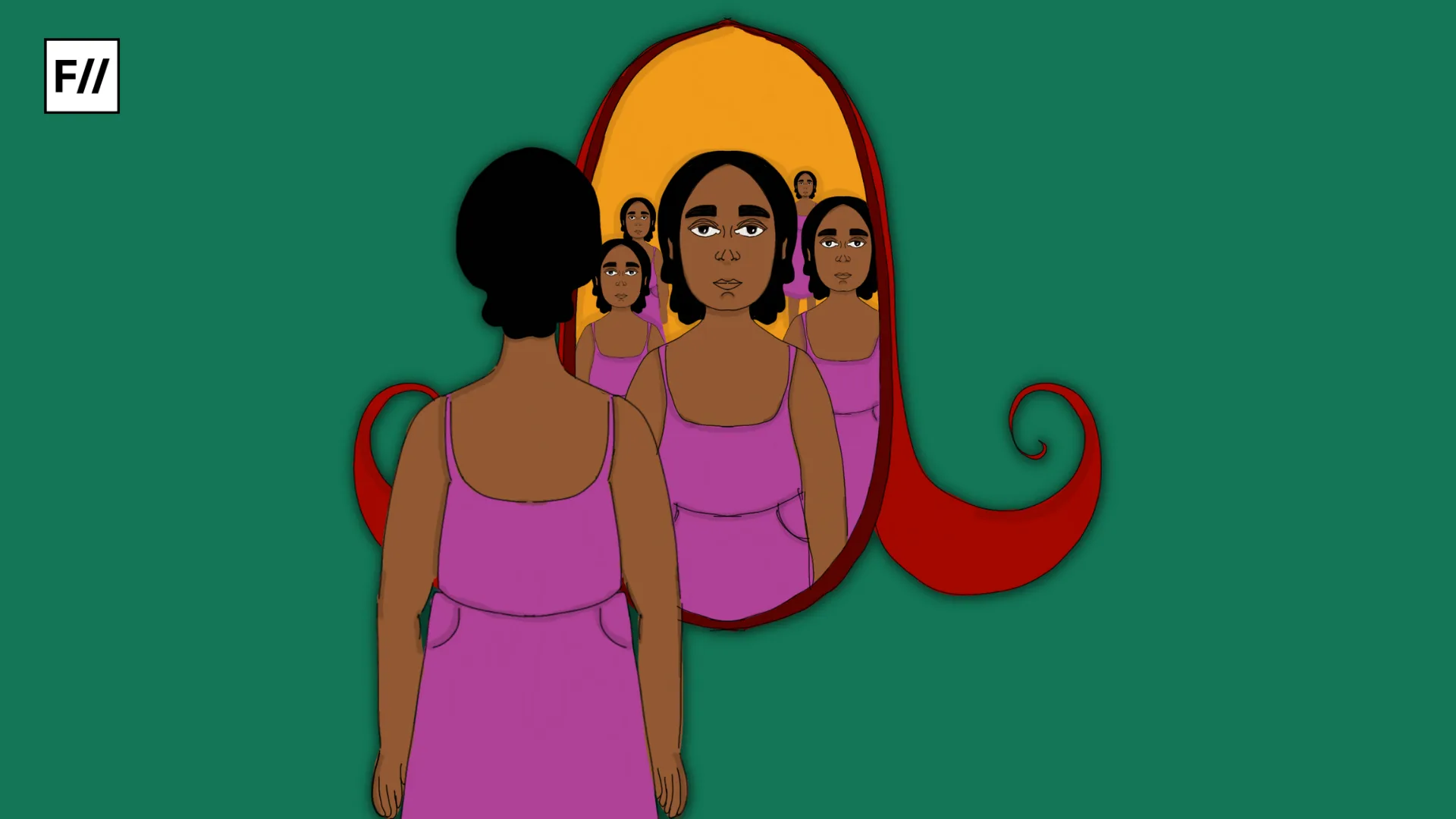
In a research paper on ‘Masking Hegemony with Makeup‘, the author Rajneet Bath invokes the feminist media theory and Gramsci’s cultural hegemony theory to explain how the ever-growing beauty-influencer industry has increased their span and influence on social media users. The research states that it is important to critically assess the hegemonic norms used to promote beauty products. It claims that the beauty influencers—sponsored by capitalist beauty industries—play a huge part in enforcing patriarchal beauty and femininity ideals that continue to perpetuate the beauty status quo.
Gramsci‘s cultural hegemony focuses on the control that the ruling class has on cultural norms, values, and beliefs within society. Cultural hegemony, according to Gramsci, operates through the construction of consent, and thus, the ruling class establishes its worldview as the dominant and natural order of things. This hegemony, which can also extend to media, is subtle and passive such that it is not necessarily detected unless it’s seen through a critical lens.
Feminine identity, beauty and consumption
Across media platforms I have engaged in content that talks about girlhood and what it is like being a woman. And I thrive in the social media space that is dedicated to women and their agency. I come across posts of aesthetically organised makeup and skincare products wrapped up in pink packaging, with a Stanley Cup sitting in the corner of the table and a caption that says, ‘How I love being a woman.‘
And don’t get me wrong, I personally love the eye-pleasing pictures with products I too crave to own, and maybe I even myself own a few of them, but the hyper and constant connection of girlhood with mass consumption—homogenising how we engage with these products, fostering a sense of sameness—should make us question how much individual agency we actually practise in the current society.
According to Adorno and Horkheimer, this sense of sameness or uniformity reduces ‘…the critical faculties of consumers, fostering passive consumption and conformity rather than independent thought or artistic appreciation.‘
According to Adorno and Horkheimer, this sense of sameness or uniformity reduces ‘…the critical faculties of consumers, fostering passive consumption and conformity rather than independent thought or artistic appreciation.‘ They also contend that the culture industry reinforces existing power structures as norms. Thus, it becomes hard for us to set apart the patriarchal beauty standards from our own ideals, and we internalise them as our own.
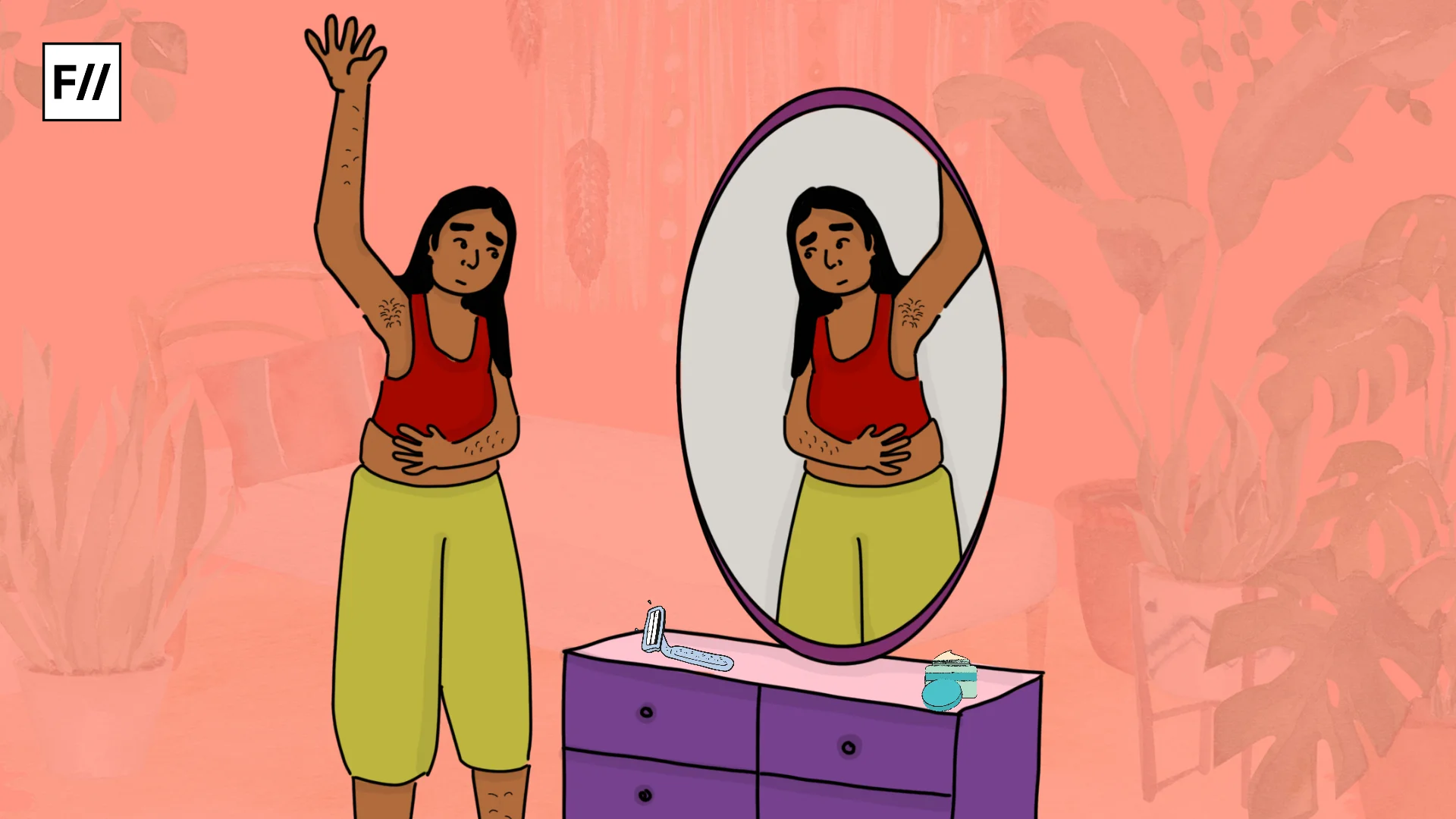
I vehemently agree with the notion that doing makeup does not necessarily mean doing it for the male gaze. It, as most women reiterate, is a confidence booster, as it makes them feel more presentable. But makeup does definitely put us in a double bind where women effectively feel obligated to do things because of the big beauty industry that continues to project it as such. Thus, the desire to do makeup—even to feel confident—is fulfilling these desires that are manufactured by oppressive structures.
‘But I am just a girl‘ and anti-intellectualism
The line ‘I am just a girl‘ has been doing the rounds around the internet, used by women to justify their silly little habits or mistakes. The idea, ‘Oh, I love shopping; I spend too much money on shopping and overconsumption of commodities that I don’t necessarily need, but it’s okay because I am just a girl,‘ discounts a sense of accountability that we as humans need to have.
This trend is rooted in the song ‘Just a Girl‘ by No Doubt. The song, in contradiction to what the trend has turned into, is a satire of the infantilisation of women and reducing them to just being fragile, petite girls that need a man to hold her hand to do anything in this world. However, it is being used to justify and further the agenda that continues to reinforce patriarchal standards in the society.
These trends, disseminated and commodified by the larger corporations, have tried to breed a space where women take pride in being shallow and uneducated.
These trends, disseminated and commodified by the larger corporations, have tried to breed a space where women take pride in being shallow and uneducated. It is a chain reaction, where women start with smaller silly things—like going on an unnecessary shopping spree—to stating things like, ‘Why do I have to work? I am just a girl‘ perpetuating the notion that ‘feminism tricked women into believing that we need to be career women.’
I am a feminist even with all the contradictions
I am a feminist even when I continue to engage and play a part in the oppressive systems that are in contradiction to what being a feminist means. Every day I wake up with a sense of wanting to be prettier, wanting to look a certain way and actively taking part in a system that has perpetuated and continues the cycle of oppression on me and countless others.
But I also reclaim a sense of control by not engaging in these acts without seeing them through a critical lens. I do not shame women who, say, for example, do makeup or reduce their autonomy by internalising these standards set by society. I just believe that isolating the trends and ideas from the cultural contexts and taking them at face value creates more harm than being aware of these notions and still participating in them.
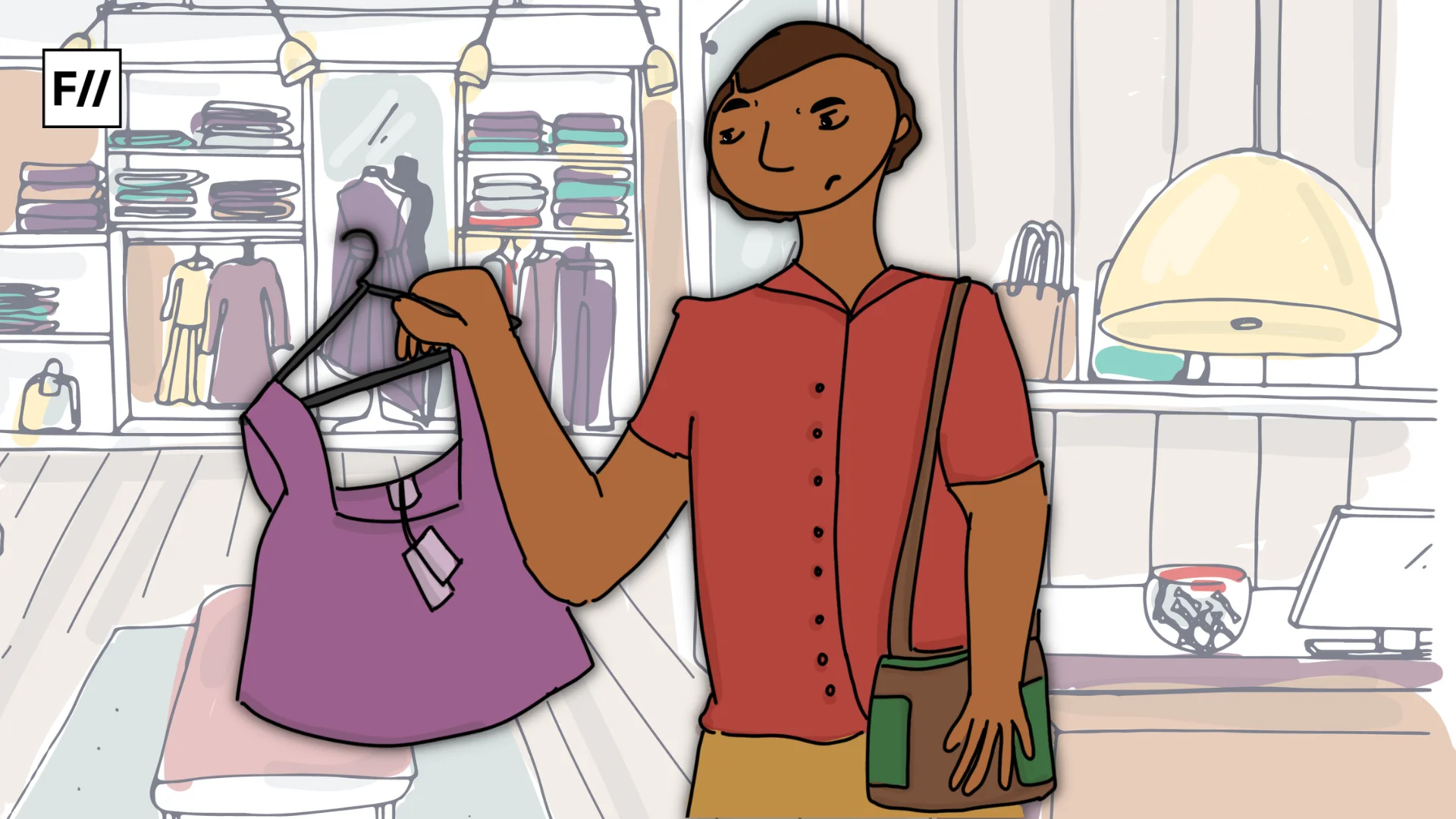
We live in a capitalist society, where complete seclusion from these practices might not be entirely possible, but we are regaining a sense of control by knowing that these trends and ideas are not harmless and we are trying to do our part by actively educating one another and not reducing the impact these practices have on our lives and society.
About the author(s)
Reeba Khan is a Political Science student at Delhi University. As a writer and student journalist, she has a keen interest in issues of identity, conflict, and politics of belonging. She writes to remember and to resist
